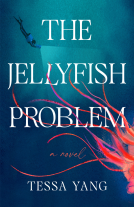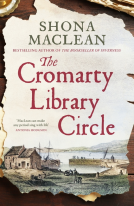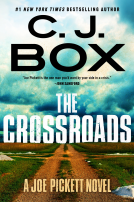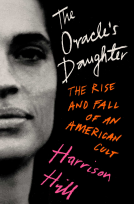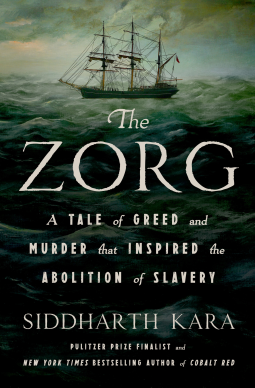
The Zorg
A Tale of Greed and Murder That Inspired the Abolition of Slavery
by Siddharth Kara
This title was previously available on NetGalley and is now archived.
Send NetGalley books directly to your Kindle or Kindle app
1
To read on a Kindle or Kindle app, please add kindle@netgalley.com as an approved email address to receive files in your Amazon account. Click here for step-by-step instructions.
2
Also find your Kindle email address within your Amazon account, and enter it here.
Pub Date Oct 14 2025 | Archive Date Oct 28 2025
Talking about this book? Use #TheZorg #NetGalley. More hashtag tips!
Description
"A book of great importance and one that will likely become a classic." - New York Times Book Review
One of The New York Times' 100 Most Notable Books of 2025
A Time Magazine Must-Read Book of 2025
A New Yorker Essential Read
From the Pulitzer Finalist and New York Times bestselling author of Cobalt Red: How the Blood of the Congo Powers Our Lives
Perfect for fans of David Grann’s The Wager and The Wide, Wide Sea by Hampton Sides
In late October 1780, a slave ship set sail from the Netherlands, bound for Africa’s Windward and Gold Coasts, where it would take on its human cargo. The Zorg (a Dutch word meaning “care”) was one of thousands of such ships, but the harrowing events that ensued on its doomed journey were unique.
By the time its journey ends, the Zorg would become the first undeniable argument against slavery.
When a series of unpredictable weather events and navigational errors led to the Zorg sailing off course and running low on supplies, the ship's captain threw more than a hundred slaves overboard in order to save the crew and the most valuable slaves. The ship's owners then claimed their loss on insurance, a first for slaves who had not been killed due to insurrection or died of natural causes.
The insurers refused to pay due to the higher than usual mortality rate of the slaves on board, leading to a trial which initially found in their favor, in which the Chief Justice compared the slaves to horses. Thanks to the outrage of one man present in court that day, a retrial was held. For the first time, concepts such as human rights and morality entered the discourse on slavery in a courtroom case that boiled down to a simple yet profound question: Were the Africans on board people or cargo?
What followed was a fascinating legal drama in England’s highest court that turned the brutal calculus of slavery into front-page news. The case of the Zorg catapulted the nascent anti-slavery movement from a minor evangelical cause to one of the most consequential moral campaigns in history―sparking the abolitionist movement in both England and the young United States.
The Zorg is the astonishing yet little-known true story of the most consequential ship that ever crossed the Atlantic.
Advance Praise
"This remarkable, riveting book about a famous event of nearly two and a half centuries ago finds a raft of new information that generations of historians (myself included) have missed. And the episode involved was not just one more atrocity onboard a slave ship at sea; it was the spark that helped ignite the greatest human rights movement of all time.” —Adam Hochschild, author of King Leopold's Ghost
Available Editions
| EDITION | Other Format |
| ISBN | 9781250348227 |
| PRICE | $30.00 (USD) |
| PAGES | 320 |
Available on NetGalley
Average rating from 167 members
Featured Reviews
 Hannah K, Reviewer
Hannah K, Reviewer
I didn't expect this to be where Mr. Kara decided to go next after focusing on the cobalt industry in the DRC, but honestly, maybe I should have. Kara uses primary historical texts (letters, court documents, etc) to retell what happened during the storm in which the ship captain decided to start throwing slaves overboard and then try to do an insurance claim for loss of cargo. Seeing the accounts of what happened laid out like this and juxtaposed against the claims they tried to make in court makes you understand why this case ended up being so big to the nascent abolition movements in England and America. Also unsurprisingly lays out the depths of inhumanity involved (you tried to claim the people you murdered as a fucking cargo insurance claim?!). Hell of a read and worth your time.
The Zorg by Siddharth Kara is a compellingly written and deeply unsettling account of one of the pivotal incidents that helped catalyze the movement to end slavery in Britain. Kara centers his narrative on a single voyage of The Zorg, a slave ship plagued by catastrophic failures during the Middle Passage. In a harrowing act of cruelty, the acting captain ordered the murder of over 100 enslaved Africans—including a newborn—to preserve water for the white crew.
What followed was both disturbing and telling: the syndicate that funded the voyage attempted to collect insurance for the loss of enslaved “cargo.” The legal case that ensued may not have brought justice, but it did bring exposure. The public outcry was massive; the vivid details of the trial shocked the British conscience, leading to a surge in abolitionist sentiment. Nearly 5% of the British population signed petitions to end slavery, a staggering number that speaks to the impact of the revelations.
What elevates this book beyond historical recounting is Kara’s powerful effort to humanize the enslaved individuals aboard The Zorg. Though most of their names were lost to history, Kara gives two of them identities—names, imagined origins, and possibilities. These composite narratives offer case studies into the lives torn apart by the slave trade and remind the reader that behind every statistic is a person, a story, a loss.
The writing is graphic, but never gratuitous. Kara spares no detail when describing the horrors of the slave ship—rape, dismemberment, and murder—but each moment serves a purpose: to confront the brutal reality that so many would rather forget. Readers should take care while reading, especially those sensitive to traumatic content.
A final note: I don’t always read the acknowledgments, but I strongly recommend not skipping them here. Kara includes a moving tribute to his late wife that adds a layer of tenderness to a book otherwise filled with sorrow and rage.
This is not an easy book, but it is an important one. For those seeking to understand the historical machinery of the slave trade—and the cracks through which justice sometimes shines—The Zorg is unforgettable.
 Alise S, Reviewer
Alise S, Reviewer
This was extremely interesting history that I had heard the name of before but never the details. This book had a great amount of detail without feeling like a textbook. It was very engaging, and the author doesn't pull any punches on the brutality of the history presented. While the events are horrific and therefore not "enjoyable" to read, it kept me hooked throughout.
I haven't read any of this author's prior works, but this makes me want to check those out!
Dramatic History: Murdering Slaves Because of Poor Trip Planning
Siddharth Kara, The Zorg: A Tale of Greed and Murder That Inspired the Abolition of Slavery (New York: St. Martin’s Press, October 14, 2025). EBook: $26.99; Nonfiction. ISBN: 978-1-250415-95-0.
*****
“…A notorious slave ship incident that led to the abolition of slavery in the UK and sparked the US abolitionist movement. In late October 1780, a slave ship set sail from the Netherlands, bound for Africa’s Windward and Gold Coasts, where it would take on its human cargo. The Zorg (a Dutch word meaning ‘care’) was one of thousands of such ships, but the harrowing events that ensued on its doomed journey were unique. After reaching Africa, the Zorg was captured by a privateer and came under British command. With a new captain and crew, the ship was crammed with 442 slaves and departed in 1781 for Jamaica. But a series of unpredictable weather events and mistakes in navigation left the ship drastically off course and running out of water. So a proposition was put forth: Save the crew and the most valuable of the slaves—by throwing dozens of people, starting with women and children, overboard. What followed was a fascinating legal drama in England’s highest court that turned the brutal calculus of slavery into front-page news. The case of the Zorg catapulted the nascent anti-slavery movement from a minor evangelical cause to one of the most consequential moral campaigns in history—sparking the abolitionist movement in both England and the young United States. Siddharth Kara utilizes primary-source research… and painstaking investigation to uncover the Zorg’s journey, the lives and fates of the slaves on board, and the mysterious identity of the abolitionist who finally revealed the truth of what happened on the ship.”
As I glanced through this book, it seemed to be hinting that Thomas Clarkson (1760-1846) was the anonymous abolitionist behind outing this ship’s disaster-story. Clarkson was determined in my 18-19th century British re-attribution study to be a ghostwriter who wrote both pro- and anti-slavery manuscripts to encourage his pro-slavery sponsors to invest more into the pro-slavery propaganda. Clarkson semi succeeded in delaying the abolition of slavery’s stages after he started ghostwriting rather late in life in 1808. He probably started this work in 1808 after transatlantic slave trade was abolished in 1807. And his work is likely to have kept slavery legal within the British Empire until 1833, and delayed full emancipation until 1838, and then he probably helped to avoid legalizing in the US through the time of his death, after which a sincere abolitionist movement finally started in the US. So, if Clarkson was behind publicizing the Zorg narrative, he probably did it to scare the public with a worst-case scenario to make milder abuses (short of mass-killing) seem not-too-bad. The “Prologue” explains that modern readers tend to have an erroneous version of the story, such as mistakenly thinking this ship was British and not Dutch. Clarkson would have introduced such simplifications, exaggerations, and misinformation into the narrative while repeating it in multiple publications under different bylines.
The first chapter opens with preparations to depart on a sea voyage. Sea travelogues are generally delightful to read. A lot of exciting events tend to happen, and descriptions of the open sea, and places encountered tend to be great reading.
The next element I questioned is where the details in this narrative come from. This ebook has hyperlinked notes that led to the “Notes” section that includes a thorough list of sources related to the lives described. There are even precise page numbers for sources: this is frequently missing in some poorly-sourced narratives.
The story includes relevant data on the survival rates for British seamen, “one-fifth”. Each paragraph offers relevant new information and moves forward in a logical manner (there are smooth transitions, and the narrative is linear). Even the amount Collingwood was making as the ship’s doctor ($900-1,200 in today’s money) is specified with an explanation of what this meant.
This is the right way to handle this narrative. It would have been wasteful to focus on the inhumanity of the slave trade. Many books insert too much philosophy into books that are histories or biographies that promise informative stories. It is better to get to the facts of what the realities of the slave-trade were, as opposed to doing so much moralizing about it that the book is mostly hot-air. For example, there is data on the 8.6 mortality rate on one trip to Jamaica. Then, when a new character is introduced, such as Liverpool, a brief biography is given for him as well. Researchers who are using this book as a main source to leap into their own research on this subject will find much of the relevant surrounding information compressed here, without needing to seek out the other sources (which are cited in “Notes”, in case they want to explore more of what these sources stated).
Glancing across the rest of the book, the author maintains a thoroughly researched, dramatic, and well-described pace. This is a good way to dramatize history without turning it into fiction. There are few lines of imagined dialogue (perhaps none). And descriptions are of nature, architecture, records, and the like that could logically be learned from reviewing primary sources. For example, one passage describes how slaves were “oiled head to toe, and given citrus to treat their scurvy.” The narrator describes “mangroves” that “teemed with hummingbirds, boas, and crocodiles. Beyond the settlement, verdant mountains rolled gently toward the powder-blue sky.” This is an example of romantic description without too much romance, and without too much repetitive description.
I did not notice any mistakes in this book. It should be a pleasant read for those who just want to read about adventures at sea, as well as members of the public who are passionate about the subject of how the slave trade was abolished. And advanced researchers will find much in this book that has not been written in past accounts of this on-the-surface popular story. All sorts of libraries would benefit from adding it to their collection.
Pennsylvania Literary Journal: Spring 2025 issue: https://anaphoraliterary.com/journals/plj/plj-excerpts/book-reviews-spring-2025
Fascinating and historical.
Heinous acts of throwing 132 live slaves overboard and collecting insurance after their captain died. Horrific, shocking, and the writing well researched and extremely well done!
I enjoy microhistories, and this one was no exception. Kara does his due diligence setting the stage for his argument that the mass murder of slaves on the Zorg ultimately led to abolition in Britain. Starting with the the recruitment process for sailors at this time, as well as delving into the political tensions between the Dutch and British, all of which contributed to an incompetent crew aboard the Zorg. Similarly, Kara's work follows the hypothetical--yet well-researched--experiences of slaves throughout their journey from the interior of Africa to the coast and then onto slave ships and the Middle Passage. His detail is chilling, to say the least, as he brings to life the realities of these unwilling participants in history.
Overall, this is a compelling read, filled with carefully scaffolded research, primary accounts, and the twists and turns that court case documents often offer, promising some drama for modern readers.
 Amy W, Reviewer
Amy W, Reviewer
An incredible story I had never heard of before. The first part of the book really takes you through the horrors of the Atlantic Slave trade in deep and thorough detail. Then it turns to a legal thriller that keeps moving. Finally, the tale of the abolition of slavery in England. An overall fantastic read and one that all students of history should pick up.
How do rate a book that’s based in history? I enjoyed all that I was thought from reading this book. I love reading about history. So much is happening in this book that it keeps you on your toes.
 Robert L, Reviewer
Robert L, Reviewer
“The slave trade was a nest of serpents, which would never have endured so long, but for the darkness in which they lay hid”
This book is an account of the slave ship, Zorg, and the role it had on exposing that darkness and depravity of the slave trade. The book works in two parts (1) the account of the Zorg, from it’s capture by the British, its repurposing to transport slaves from Africa to Jamaica, and the mass murder that occurred on that voyage, to (2) the legal aftermath and role it played in contributing to the abolition of the slave trade and slavery in England after those horrors were brought to the public.
The author presents a well researched account of the Zoey’s voyage and the murder of 132 slaves that occurred on board, while then documenting how this event served to expose the atrocities of the slave trade to the public at large. The book highlights the tireless work of abolitionists, including a former slave, who each deserve to be remembered for their contributions to justice. As you will learn from reading this book, it would take another 36 years of continued and tireless lobbying against slavery, after the Zorg reached the public conscience to the time that Britian finally outlawed slavery. However, the events that occurred on the Zorg were no doubt important to moving along the cause for freedom, because they were such a shocking exposure of the brutality of the slave trade.
I very much appreciate authors like this who can provide easy to read and engaging historical accounts of lesser celebrated figures and events. Those abolitionists highlighted in this book deserve to be remembered, and these are stories that we should not forget. Thank you to NetGalley and St. Martin’s Press for providing this book, I highly recommend it to all.
I thought when I began the Zorg I was going to read a book about sailing. I had no idea that it was really about man’s inhumanity towards man. This is a difficult read. Africans capturing Africans who in turn sell these prisoners to Europeans who funneled them into the slave trade is depressing and all too real in this extremely hard to read book. To think that Stubs, the passenger captain, was responsible for jettisoning 132 humans alive into the ocean is hard to fathom. It reminds me of the horror of the Doors song, Horse Latitudes. The author’s investigation into the legal ramifications of this story is brilliant! He did an amazing job bringing this to light. It’s still hard to believe that after the trial was over, the slave trade flourished and produced a huge amount of income for the British empire…!
I am fascinated by stories of shipwrecks and other adventures and events on the high seas from centuries past. The Zorg seemed the perfect book to satisfy this interest. But boy, oh boy, I was unprepared for the tragedy that is the Zorg. Centered around a single ship (the Zorg), the book tells the story of a slave ship overcome with difficult circumstances made difficult only because of the ship’s incompetent crew alone. In a period of (unwarranted) fear, the ship’s captain, hoping to preserve the lives of the white crew, orders the murder of over 100 enslaved Africans, including a newborn, while at sea. While reading this section, covering only the first half of the book, I took many pauses and deep breaths.
Later, in lawsuits centered around the ability of the Zorg’s owners to collect insurance money for the murdered ‘cargo,’ it becomes apparent how unnecessary and cruel the actions of the captain were. The murder was not necessary. More than sufficient supplies existed, when rationed. There was no excuse.
This book is hard to read. It’s sad, heart-breaking, vivid, and brutally honest. But, it is important. Each of those Africans who lost their lives that day are being remembered. Their story is being told. And, because of that captain and his actions, we begin to witness the downfall of slavery as a systemic system in Britian and eventually, worldwide.
To Siddharth Kara, I sincerely thank you for telling this story.
To NetGalley, St Martin’s Press, and Siddharth Kara, thank you for the advanced reader copy of this book.
 Abby C, Bookseller
Abby C, Bookseller
Kara presents a very will researched and empathetic telling of this horrific event. I had first heard of this ship from M. NourbeSe Philip's poem Zong!, so I thought I knew the whole story before I picked up this book. However, Kara presents all the details, as uncomfortable and sickening they might be, to paint a complete picture of the before, during, and after of the Zorg. I appreciated the narrative structure infused throughout, it really helped to visualize the lost perspectives of all the slaves aboard. The information was distilled in such a way that made it easy to understand, without feeling like the author dumbed it down for readers. This is a book everyone should pick up and read eventually.
Many thanks to St. Martin's Press for providing me with an advanced digital copy via NetGalley in an exchange for an honest review.
Readers who liked this book also liked:
; Debra Colodner; Catherine Bartlett; Jesús M. García; Craig Ivanyi; Roxane Ramos
Children's Nonfiction, Outdoors & Nature, Travel
